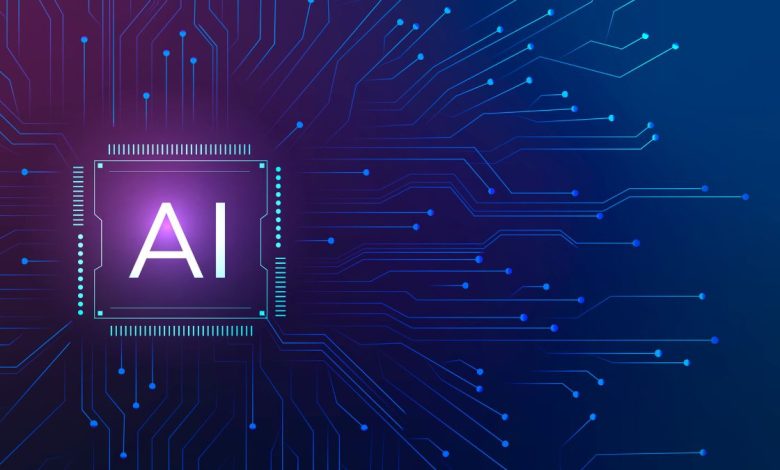Microsoft SA: AI Reshaping Traditional Job Functions and Creating New Opportunities

Artificial Intelligence (AI) is no longer a buzzword; it’s here, reshaping the way we work, live, and interact with technology. In South Africa, Microsoft SA is at the forefront of driving this transformation, not only by advancing AI technology but also by equipping South Africans with the skills needed to thrive in an increasingly digital economy. Through strategic investments and innovative partnerships, Microsoft is helping businesses and individuals adapt to the rapidly changing job landscape.
AI: Transforming Traditional Job Functions
In South Africa, industries such as manufacturing, healthcare, finance, and education are seeing dramatic shifts due to AI’s growing presence. Traditional job functions are evolving, with AI tools automating repetitive tasks, optimising business operations, and enhancing decision-making processes. This transformation is empowering businesses to achieve higher efficiency, but it’s also creating new challenges and opportunities for employees.
Take the financial sector, for example. AI-driven tools are enabling banks and insurance companies to provide better customer experiences by automating claims processing, personalising customer interactions, and reducing fraud risks. While these advances are beneficial for businesses, they also highlight the need for a workforce with specialised skills in AI and data analytics.
However, AI isn’t just about replacing human tasks; it’s also creating entirely new roles. Professions such as data scientists, AI engineers, and machine learning specialists are in high demand as companies strive to integrate AI technologies into their operations. This shift presents an opportunity for individuals to upskill and enter emerging fields that were previously non-existent.
Microsoft SA’s Role in Shaping the Future of Work
Recognising the need for AI skills in South Africa, Microsoft SA is investing heavily in training and infrastructure to support the country’s digital transformation. Microsoft has committed to training one million South Africans in AI and cybersecurity by 2026, equipping the local workforce with the skills needed to meet the demands of the future job market.
Through partnerships with local universities and training organisations, Microsoft is offering free resources, certifications, and tailored learning paths to help individuals gain the skills needed to excel in AI-related fields. This initiative aims to address the skills gap and foster a more digitally literate workforce, ready to take on new roles in the rapidly evolving job market.
As Lillian Barnard, President for Microsoft Africa, explains, “By providing skilling opportunities and access to industry-recognised certifications, our youth will be well-positioned to compete on the global stage.” Microsoft’s commitment to education and skills development is making it possible for South Africans to build meaningful careers in technology, opening doors to opportunities that were previously out of reach.
Investing in South Africa’s AI Future
Microsoft’s efforts don’t stop at training programs. In March 2025, the company announced a ZAR 5.4 billion investment in expanding its AI and cloud services in South Africa. This investment is part of Microsoft’s larger strategy to support the country’s ambition to become a global leader in AI and digital technologies. By enhancing local cloud infrastructure and expanding AI capabilities, Microsoft is positioning South Africa as a competitive player in the global tech economy.
Brad Smith, Vice Chair and President of Microsoft, commented on the investment, saying, “Beyond blazing a trail in the local technology space, the longstanding presence of Microsoft in South Africa is a vote of confidence in our country and in our economy.” This investment will not only help local businesses stay competitive but will also support the growth of the tech ecosystem in South Africa, creating jobs and fostering innovation.
ALSO READ: How AI Tools Can Help You Land Your Dream Job
Empowering Youth Through AI Training
One of the most exciting aspects of Microsoft SA’s work in South Africa is its partnership with the Youth Employment Service (YES). Through this collaboration, Microsoft is offering AI training to 300,000 young South Africans, helping them gain valuable digital skills and prepare for careers in the tech industry.
The AI Youth Training Platform, developed in partnership with YES, is an accessible learning tool that offers young people tailored courses in AI, machine learning, and other tech-related fields. By providing these resources, Microsoft and YES are empowering South Africa’s youth to take advantage of new job opportunities created by the rise of AI technologies.
Jacki O’Neill, Director at Microsoft Research Africa, highlights the importance of expanding access to AI tools, stating, “As more people across Africa get access to GenAI tools through their internet-enabled devices and more affordable data, the barriers to access are being reduced and opportunities for skilling can increase.” This initiative is not just about addressing unemployment—it’s about creating a generation of skilled professionals ready to take on the challenges and opportunities of the digital age.
A Future Driven by AI and Innovation
AI is shaping the future of work in South Africa, with Microsoft SA playing a pivotal role in this transformation. From skilling initiatives to significant investments in cloud and AI infrastructure, Microsoft is providing the tools and resources South Africans need to succeed in the digital economy.
As AI reshapes traditional job functions, Microsoft focuses on education, training, and investment to ensure that South Africa’s workforce is not left behind. By equipping individuals with the skills needed to thrive in AI-powered industries, Microsoft is helping to create a brighter, more innovative future for South Africa.




